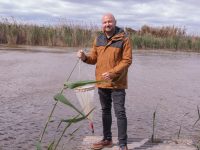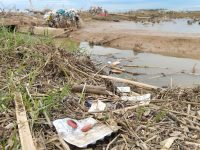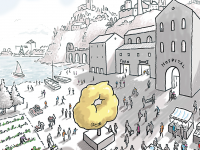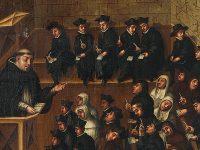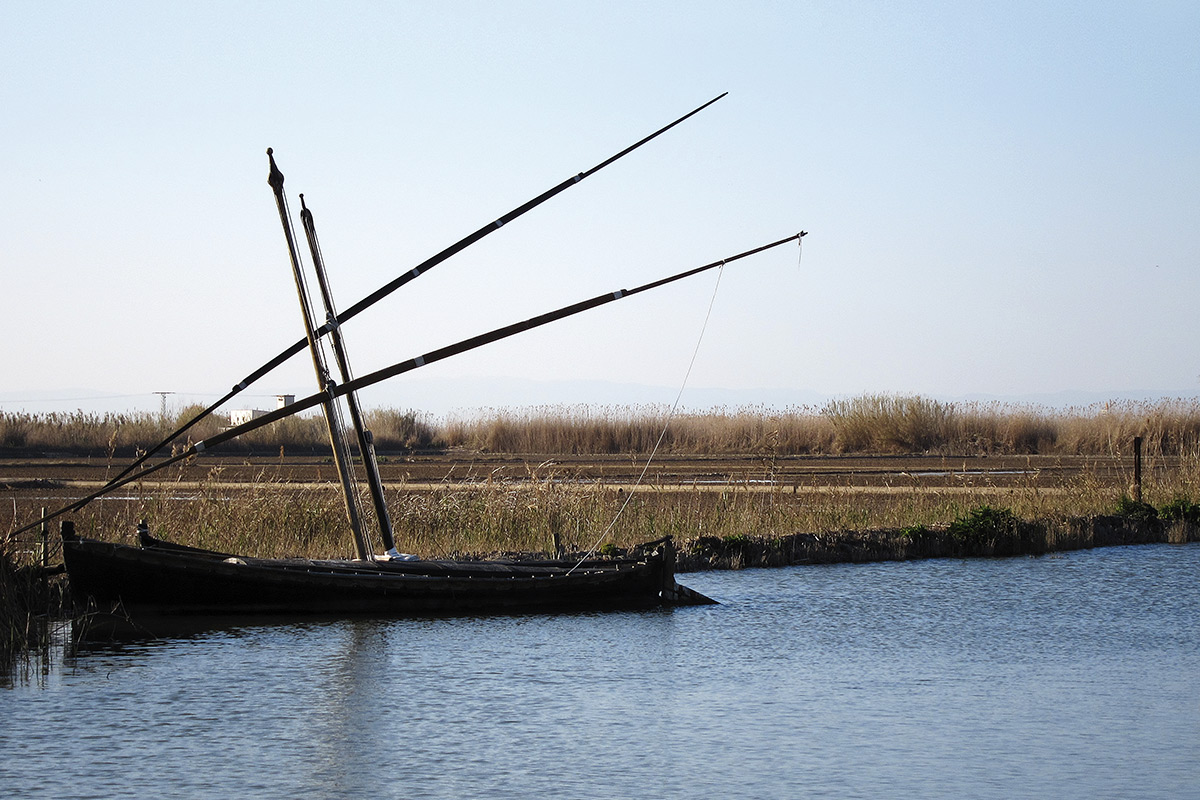
One by one, the fishermen from El Palmar (Valencia) choose their fishing spots, also called redolins, as their names are called out by drawing lots. The first ones are the lucky ones—this year chance allows them to increase their benefits, since the chosen spots carry a larger number of fish. The last one to choose, Felicidad Dasí, recently incorporated by right to the Fishermen Community, will relinquish her right to fish. It wouldn’t be worth the effort.
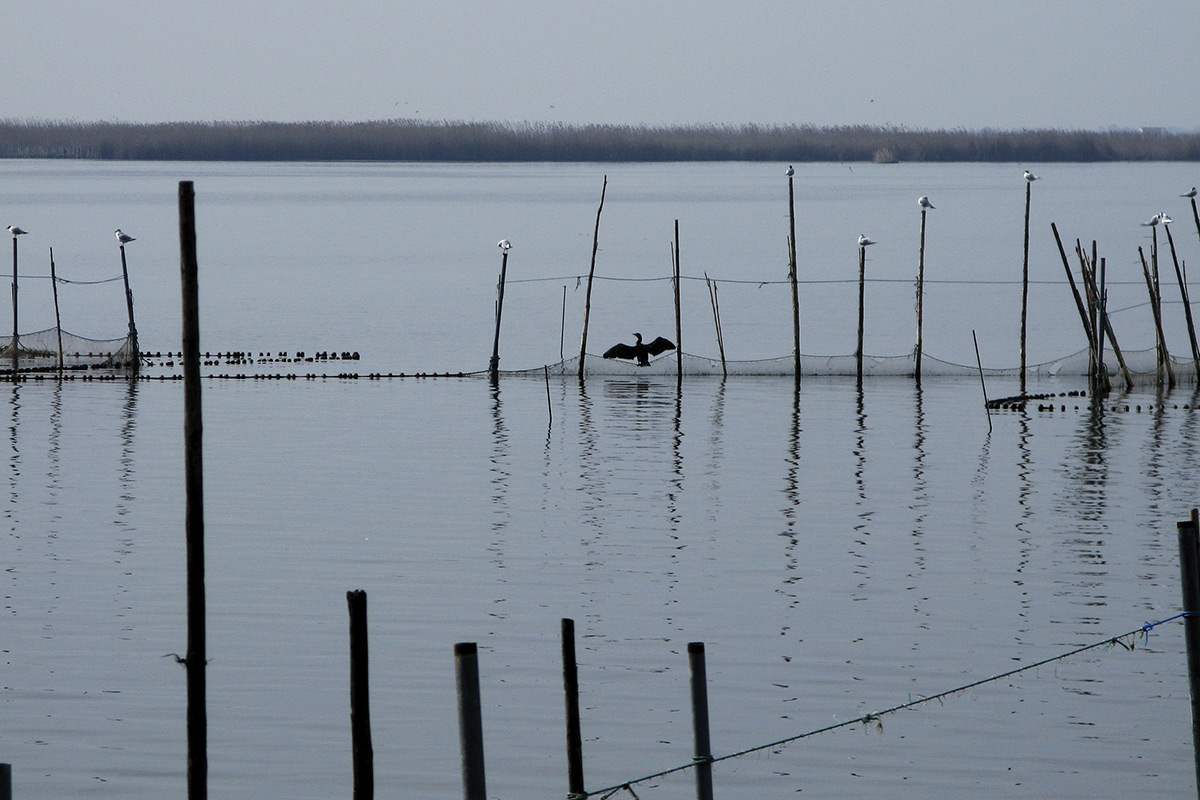
The bestesa is the length of the meadows of each redolí. This meadow from El Pujol is one of the longest in the Albufera and its purpose is to lead the fishing towards the dead ends where the mornells, a kind of creel, are. / © José Manuel Almerich
Fifty years ago, the first one to choose would have become a rich person, while the last one to choose would have been doomed to hunger and misery. The tradition has been going on for thirteen centuries, and it has been agreed and respected by everyone. Both the Fishermen Community and Valencia’s traditional Water Tribunal are still working as institutions at the service of a people and the landscape they have created.
Until only a few decades back, the Albufera had three hundred fishing spots and everyone in the nearby town of El Palmar made their living out of fishing. In the sixties you could fish in one night as much fish as what it takes now to fish in one year. Pollution, natural sediments and the lake’s colmation, which was slowly turned into rice fields, together with the villages and industries surrounding it, turned the Albufera in a dunghill, a bottomless pit, which people are now trying to make up to.
«Despite the current conditions of the Albufera, the El Palmar Fishermen Community still summons the thotoughbred fishermen year after year, those whose lineage gives them the right to fish»
A Long Line of Fishermen. Children of Tradition and the Landscape
Thoroughbred fishermen, the only ones with a right to fishing for being members of the Cofradia de Pescadors, or Fishermen’s Guild, and whose tradition is passed from parents on to their children, still use the same techniques that were used seven centuries ago.The exploitation of the lake had always been kept in balance with the environment up until the industrialization when la Albufera used up a good deal of its resources. Up until then, the life of the members of the guild was ruled by Royal Ordinances, given by the end of the thirteenth century. These were privileges which, by royal will, regulated the fishing and its richness.
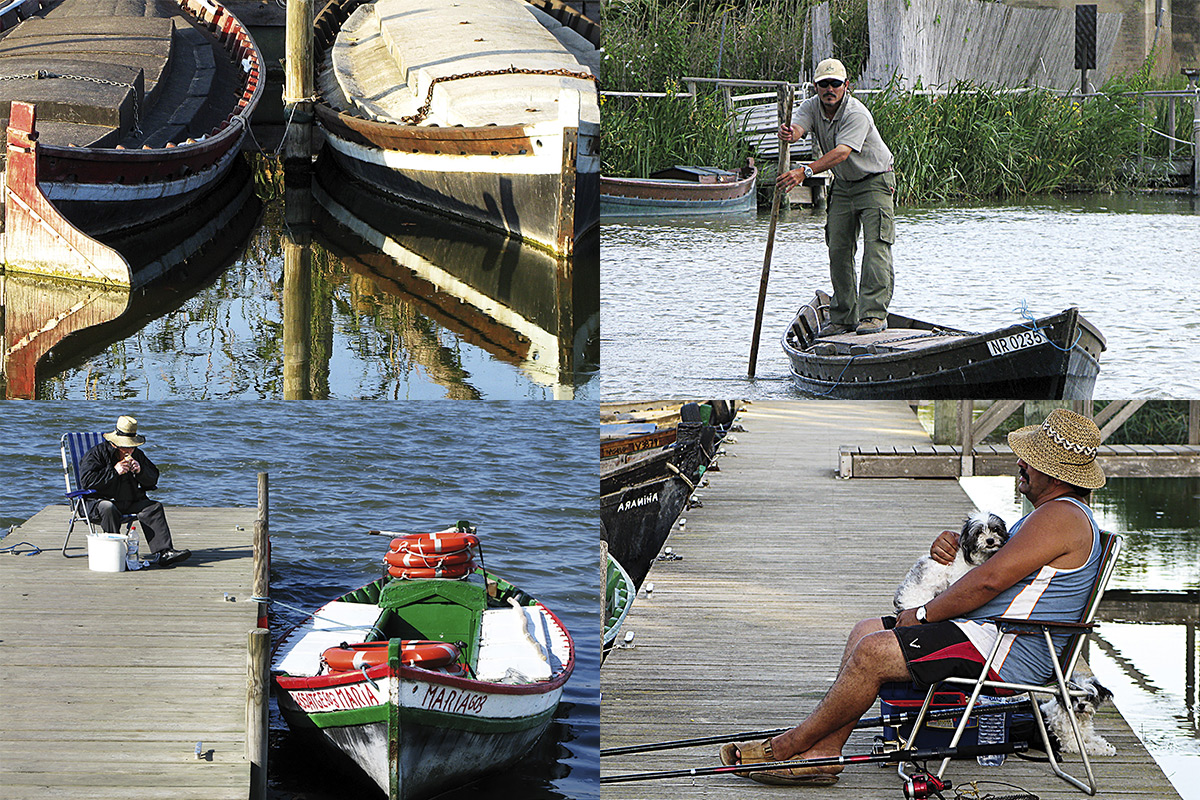
Some pictures of the landscapes of the Albufera taken from the ports of Catarroja (top left hand side and bottom right hand side) and of El Pujol (bottom left hand side). The lake is a space tightly bound to traditional fishing. The traditional system of perxa (pole) is still used by the new generations in order to sail around the Albufera (top right hand side). / © José Manuel Almerich
«The origins of the Community of Fishermen go back to times before the king Jaume I, although it is since his conquests that its privileges are regulated in written form»
The right to fishing, whose only beneficiary is the Fishermen Community, was recognized long before entering the Civil Code. Which is more, the origins of those privileges are deep rooted in the old regional civil law. And this is precisely why they are especial. Together with Valencia’s traditional Water Tribunal, it is the only institution which survives the Nueva Planta decrees (1707), which abolished any regional laws of the old kingdom of Aragon, and also later decrees, remaining completely in force and applicable today.
«Fishing in the lake is only common among throughbred fishermen, the members of the Community which pass on the rights to fishing to their children»
Before the Albufera came under the control of the city of Valencia, the Fishermen Community worked as an independent administration, taking charge of the school teacher, the premises for the school, the doctor, etc. Until very recently they even had a van to take a sick person, whether fishermen or not, to the nearest hospital. Their graveyard was even built by the Community.
Nowadays, the Fishermen Community in El Palmar has 397 active members, 59 of which are women.

A sunset from the Racó de l’Olla. / © José Manuel Almerich
The president of the Community, José Caballer, said before the drawing of the present year that fishing is at its worst because there are many factors which are working against it. Even so, the fishermen have responded with perseverance and their number remains stable for the forthcoming drawing of lots. There are over 70 permanent spots and 20 mobile ones. This year, one of the main problems for fishing is the one caused by the water valves that control the amount of water in the lake. The 85 valves allow, artificially, to control the drainage of the water to the sea. This contrasts with the view of the fishermen, who claim to have been controlling for centuries the natural course and opening of the floodgates. But this is not the only problem the fishermen have to deal with. Rice straw has been generating difficulties since it has caused the massive death of thousands of fish.
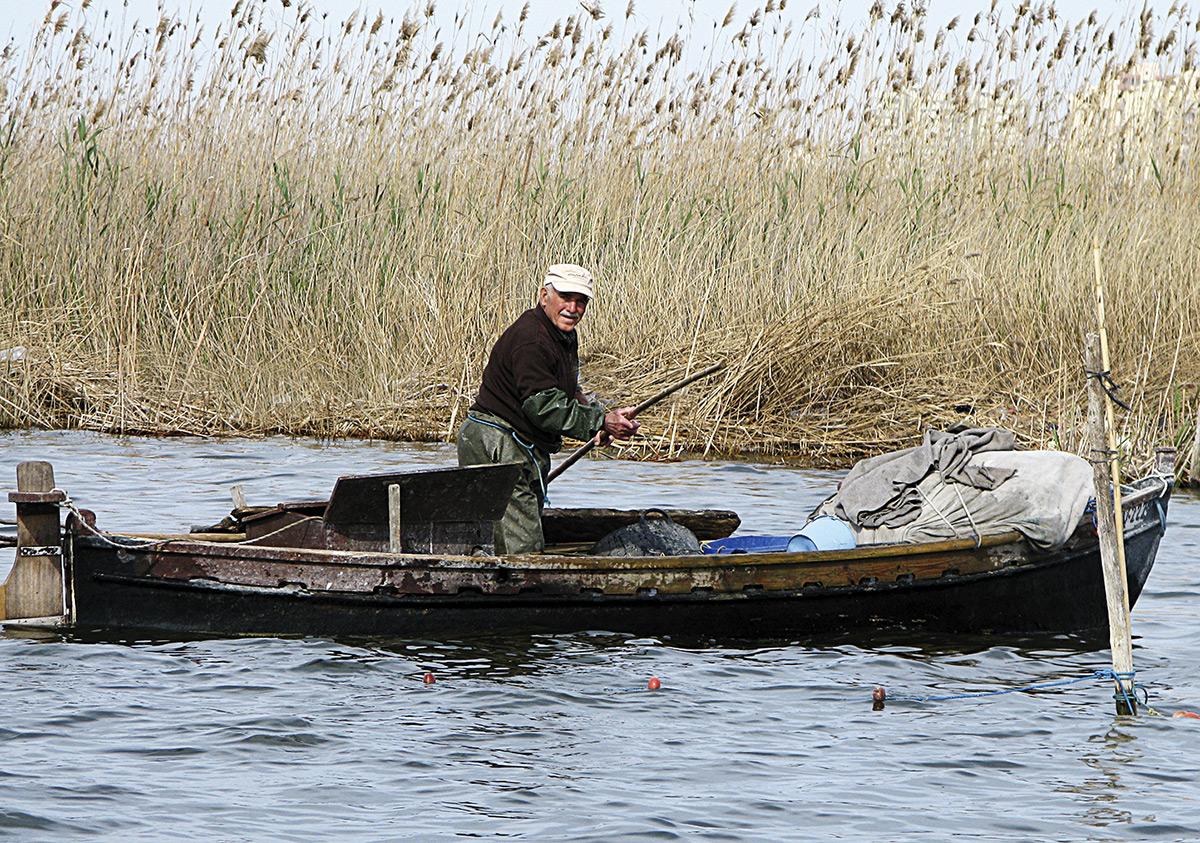
A thoroughbred fisherman working at the lake. / © José Manuel Almerich
The Oldest Institution
Due to its legal peculiarity, the Fishermen Community doesn’t fit easily into the current reality and this causes great contradictions. Even so, little by little, it has been able to adapt itself to a new society. During the forties and the fifties they would still export sea basses and eels all over Europe. After the deterioration of the lake and the pasture land in the sixties and onwards, fishing descended in a proportion of one hundred kilograms to one, which is the one existing nowadays. Of three hundred fishing spots there remain only seventy three, and those stormy nights in which one could catch up to two hundred arrobas of fish (around 2600 kilograms) in just one redolí are long lost.
«As trivial as it may seem, El Palmar is something more. It is the essence of the Valencian culture forged in the low lands next to the sea»
El Palmar is something more than what it appears to be. Sunsets in el Campot, concerts there held in summertime, boat rides and dinners in the middle of the lake just before sunset, lateen sailing boat races and zizagging roads leading to Muntanyeta dels Sants (Mountain of the Saints)… It’s the irrigation ditches and the sea, the mastic trees lashed by the eastern wind, the sand dunes, the deserted beaches and some hotel in which to rest.
As trivial as it may seem, El Palmar is something more. It is the essence of the Valencian culture forged in the low lands next to the sea. But its own inhabitants should be the first ones to have a value of it.

